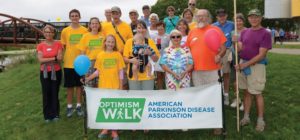 Cypress Place senior living community is pleased to announce the 11th annual Health and Wealth Expo. The annual event promotes the active and engaging lifestyle of Ventura County seniors. This year’s event features 35 local vendors as well as local author, Fawn Parish as keynote speaker.
Cypress Place senior living community is pleased to announce the 11th annual Health and Wealth Expo. The annual event promotes the active and engaging lifestyle of Ventura County seniors. This year’s event features 35 local vendors as well as local author, Fawn Parish as keynote speaker.
The Health and Wealth Expo is from 11 a.m. to 1 p.m. on Wednesday, April 10, at Cypress Place, located at 1200 Cypress Point Lane in Ventura. The event is free and open to the public.
Over the last 11 years, the expo has featured speakers with incredible stories that inspire seniors across the area. This year’s event will be no different, as local author Fawn Parish presents her book, “Living a Life that Outlives You.” Parish is the author of eight books that aim to inspire. She is also a documentary filmmaker and storyteller whose work has been seen in many countries around the world.
Parish will share practical, do-it-right-now ideas on how to find purpose in your life, no matter your age.
In addition to enjoying Parish’s uplifting presentation, attendees can get their blood pressure checked, receive glucose screenings, along with balance and hearing tests. Wealth management and veteran benefit consultants will also be on hand to answer any questions. A free healthy gourmet lunch will also be provided.
Raffle prizes will be given away throughout the event, including one grand prize: a 50’’ HD flat screen TV. Free shuttle parking will also be available at Unitarian Universalist Church of Ventura located at 5654 Ralston Street in Ventura.
Corporate sponsors for the event are Mission Home Health, Meditech Health Services, Livingston Memorial Visiting Nurse Association, Buena Vista Hospice and UCLA Health.
For more information or to RSVP, please call 805-416-8793 or visit the Cypress Place website at www.cypressplaceseniorliving.com/events.
Cypress Place offers residents a variety of amenities, activities and residential living options. In addition to maintenance-free independent living apartments, residents have access to graduating levels of care, including assisted living and memory care. For more information, call 805-293-4708 or visit cypressplaceseniorliving.com.




